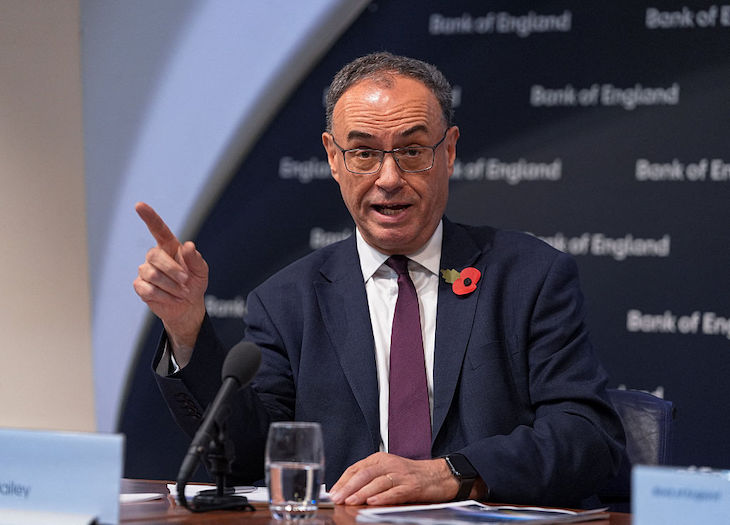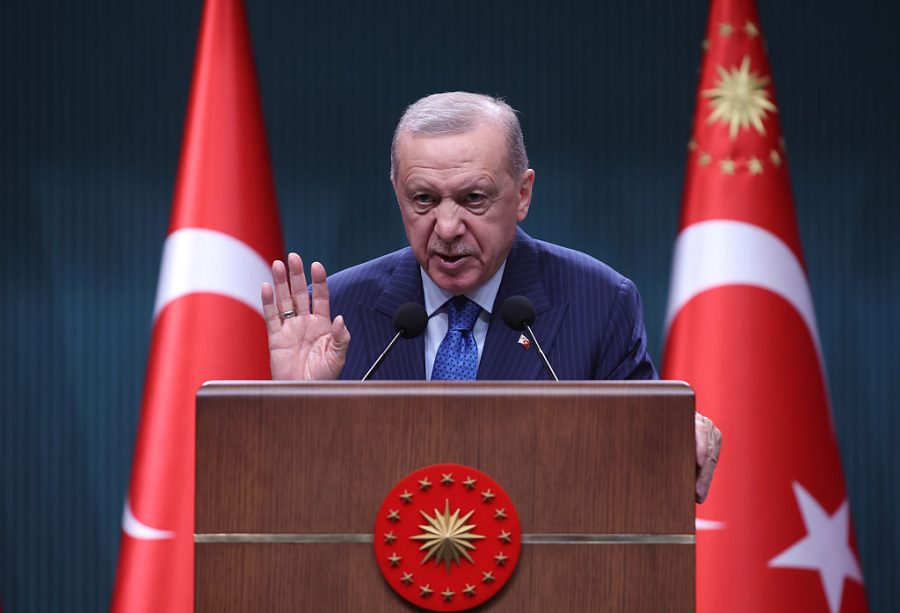Andrew Bailey recently claimed that the Bank of England has saved the government £125 billion. The Bank’s governor was responding to criticism from Reform deputy leader Richard Tice that the Old Lady of Threadneedle Street has cost taxpayers a fortune. Just weeks earlier, Reform leader Nigel Farage questioned the very idea of central bank independence, suggesting he might replace Bailey if he became prime minister. So is the Bank of England too independent for its own good?
Independence, once a shield against politics, has become a licence for technocracy
The concept of central bank ‘independence’ has certainly morphed into something it was never intended to be. Independence wasn’t about granting unelected officials unlimited discretion, but protecting monetary policy from political interference and from the hubris of the Bank itself.
The story begins in postwar America. After the Second World War, Washington had a deficit problem. The Treasury wanted the Federal Reserve to keep interest rates artificially low to help finance those deficits. But inflation was rising fast, and the Fed wanted to raise rates. President Harry Truman and Treasury Secretary John Snyder resisted, determined to keep borrowing costs down. Fed Chair Marriner Eccles refused to yield. This led to the 1951 Treasury–Fed Accord, which established the Fed’s autonomy to pursue price stability. A heroic picture of an independent central banker resisting the political influence was born.
Britain’s equivalent came half a century later, when Gordon Brown granted the Bank of England operational independence over interest rates in 1997. Independence was meant as a safeguard, a way to limit political temptation. Yet over time, that safeguard has become an escape from accountability. As Chicago school economist John Cochrane wrote, the Fed has ‘stepped into fiscal and political territory.’ The same is true in Threadneedle Street. The Bank now dabbles in climate policy, runs climate stress tests, and engages in vast bond-buying operations that could end up costing taxpayers up to £120 billion. Independence, once a shield against politics, has become a licence for technocracy.
In his defence, Bailey argues that money-printing by the Bank has saved the government £125 billion by pushing down borrowing costs. But as the Bank itself forecasts losses of roughly the same amount, this is a kind of Schrödinger’s borrowing cost: when it goes up, it’s everyone else’s fault; when it goes down, it’s the Bank’s achievement. The real issue isn’t whether the Bank gained or lost a few billion, but that it has wandered into fiscal territory. An independent central bank that finances government deficits and props up zombie firms isn’t independent: it’s political by another name.
Independence should mean freedom from political pressure, not immunity from oversight. Limitation matters more than independence itself. A central bank that can create money without consequence risks the same fate as the mythical Midas.
Imagine you live in a small village where gold is money. One morning you discover you can turn anything into gold. You buy labour to build a grand house, hire the best cooks and tailors, and seem wealthier than anyone else – yet you contribute nothing, and soon everyone around you is poorer. You might tell yourself that you should stop using this power for the good of others, but you probably wouldn’t.
That tale was told by James Buchanan, the Nobel laureate and one of the sharpest storytellers in economics. His point was simple: unchecked power, even in expert hands, corrodes the very society it serves. Central bankers, like governments, must be bound by rules: not by faith in their own virtue. Independence isn’t a virtue if it isn’t a tool for accountability.
The Bank should return to Walter Bagehot’s classical role: a lender of last resort in moments of crisis, not a permanent dispenser of quantitative easing. Bagehot understood that financial markets sometimes panic, but he also believed in allowing bad businesses to fail. His model was a limited central bank: rule-bound, not interventionist; stabilising, not distorting.
Independence was meant to free the Bank from politics, not give it a moral or fiscal agenda of its own. When the Bank acts as financier to government deficits and guardian of climate virtue, it ceases to be independent in any meaningful sense. The real question, then, isn’t whether the Bank of England is independent enough, but whether it has become too independent for anyone to hold it to account.
The Bank should focus on price stability. Instead, the modern Bank is distracted by social and political missions. Bank of England executive David Bailey told the Guardian this week that the Bank remains committed to monitoring climate risks and conducting further climate stress tests. But isn’t it more important that the Bank focuses on bringing down inflation, which has been stuck at 3.8 per cent for three months in a row? It’s certainly hard to see why climate policy should top the Bank’s agenda.
The reality is that the Bank appears to have forgotten its original purpose.
Additional reporting by Tina Ghazimorad, editor-in-chief of Manoto Newsroom







Comments